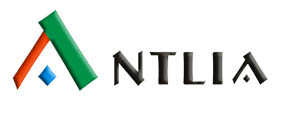The Antlia IR Pass 850nm filter allows infrared light with wavelengths above 850nm to pass through, while blocking shorter wavelengths. Designed as a companion to the IR Pass 685nm filter, this filter targets even deeper into the infrared spectrum.
At these longer wavelengths, the human eye loses sensitivity, making this filter unsuitable for visual observation. However, it’s highly effective for planetary imaging. Operating in the far-infrared range, it significantly reduces the impact of atmospheric turbulence (seeing), which sharpens image quality. The deeper you move into the infrared band, the less wavefront distortion from the atmosphere affects your images, allowing you to capture planets with the sharpest detail and highest contrast possible.
-
Mercury reveals faint surface details only when you use an IR-pass filter. It works especially well in daylight by darkening the sky background.
-
Venus shows more cloud detail when you combine the IR-pass filter with the Antlia UV Venus filter.
-
Mars benefits most from infrared imaging. The IR-pass filter reveals far more surface structure than visible light, especially during planet-wide dust storms when it helps cut through the haze.
-
Jupiter appears much sharper and more detailed in infrared. You’ll see turbulence in the bands, minor vortices, and fine structures that don’t show up at shorter wavelengths.
-
Saturn reaches its sharpest clarity in infrared. With larger aperture telescopes, the IR-pass filter can reveal the Encke division in the rings.
-
Uranus and Neptune, though distant and low in contrast, become more interesting targets in infrared. Only IR-pass filters allow you to capture notable details.
Since infrared light is invisible to the human eye, this filter is made for use with cameras on medium or large telescopes.
For smaller instruments under 150mm aperture, the Antlia IR-pass 650 filter provides a more suitable option.
Filter Ring:
1.25”( 28.5*0.6 )
Ultra-thin filter cell to minimize vignetting by maximize possible clear aperture
Black Anodized Finish
Laser Engraving No Fading



Reviews
There are no reviews yet.